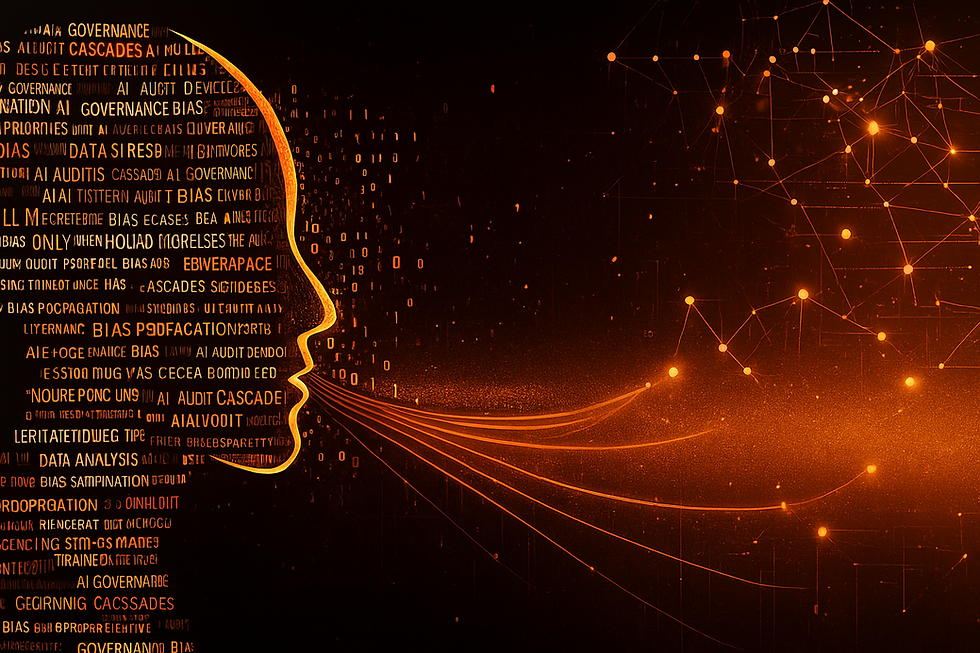Drowning in Noise: Competing with Integrity in the Age of AI Marketing
- Dale Rutherford

- Sep 4
- 3 min read
By: Dale Rutherford
Sep. 4, 2025

The digital landscape feels different now. Open LinkedIn or X, and you’ll see it — an endless stream of posts, résumés, and pitches, all polished to perfection by AI. The sheer volume of content is staggering. But with that volume comes something else: a creeping sense that much of what we’re seeing isn’t entirely real.
Take the job market. A single posting can attract hundreds of applicants. Recruiters lean on AI-powered systems to sort through the flood, while applicants, desperate to stand out, increasingly pad their résumés with exaggerated claims or outright fabrications. The process becomes less about finding truth and more about gaming a machine.
Or look at the consulting space. Every day, new “AI experts” appear online, promising instant solutions to complex problems. Their slick graphics and confident slogans make them hard to distinguish from genuine professionals. The barrier to looking like an authority has dropped dramatically — while the barrier to proving you are one has never been higher.
This is the paradox of our moment. AI has multiplied the volume of content but not the quality. Social media algorithms, tuned to reward engagement rather than truth, elevate hype and hot takes over careful insight. Traditional trust signals — degrees, company logos, polished websites — are easier than ever to fake. The result is a marketplace where noise often drowns out signal.
So where does that leave the honest professional? How do you cut through without shouting louder, or worse, compromising your integrity to play the same game?
The answer, I believe, lies not in trying to beat the noise at its own game, but in changing the terrain. In a world of empty claims, the rarest commodity is proof.
Proof looks like case studies with real numbers. It looks like methodologies shared openly, even if they reveal part of your process. It looks like testimonials that can be traced back to real people, not anonymous blurbs. Proof is slower to build, but it carries weight that hype cannot replicate.
Credibility also grows through association. Partnering with respected peers, contributing to open-source or standards efforts, or securing recognized certifications all serve as scaffolds that help others place their trust in you.
Perhaps most importantly, credibility grows when you stop selling and start teaching. When you publish explainers that demystify hype, or host Q&A sessions where people can test your expertise in real time, you demonstrate authority instead of declaring it. When you curate and amplify the best work of others, you show discernment as much as knowledge.
This is not the fast path. False actors will always find shortcuts, and many will enjoy bursts of visibility. But hype rarely sustains itself. In time, the gap between promise and delivery catches up. Trust, once lost, is nearly impossible to regain.
For those who choose the slower road, something different happens. Trust compounds. A single accurate insight, remembered months or years later, can outweigh dozens of flashy posts that faded from memory the day they were published. Integrity becomes a long-term differentiator — one that algorithms cannot fake.
The digital agora may be noisy, but people are still hungry for clarity. Amid the flood of false voices, there is room — and perhaps even a longing — for those who are willing to show their work, play the long game, and build a reputation rooted not in claims but in evidence.
In the end, surviving the noise isn’t about volume. It’s about resonance.





Comments